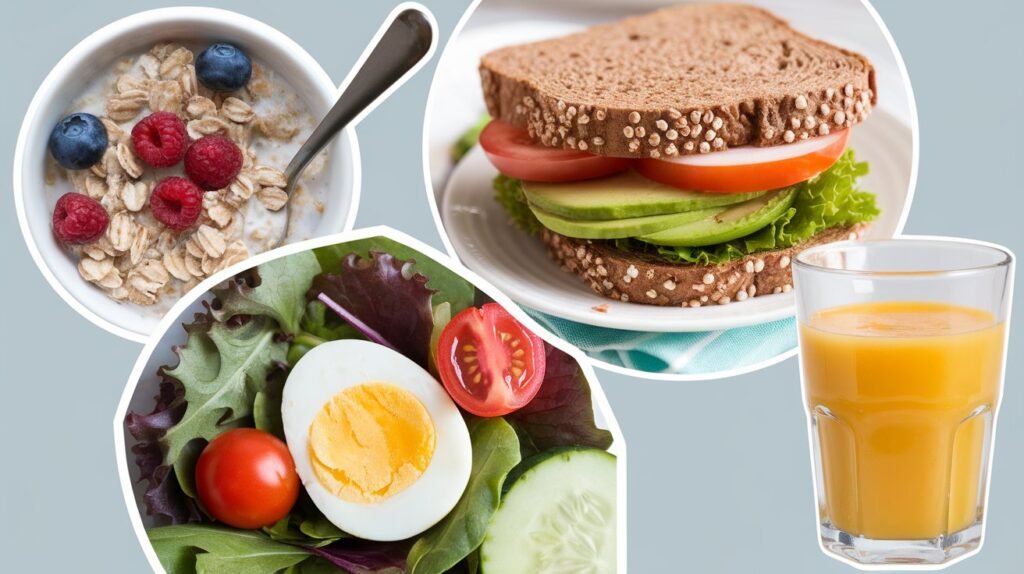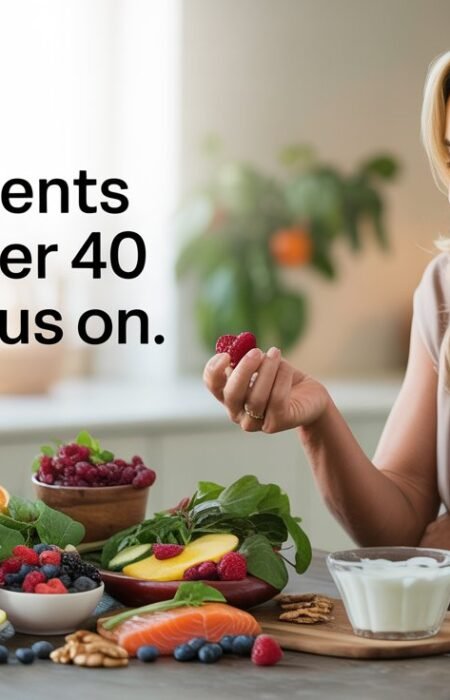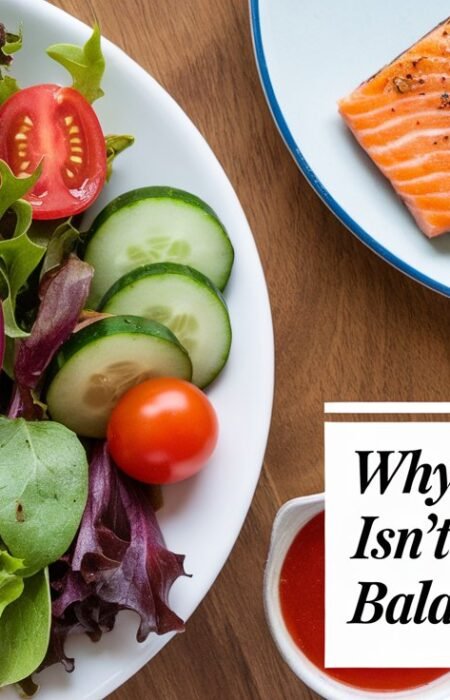The term “clean eating” has dominated the wellness landscape for years, plastered across social media, cookbooks, and diet plans. It sounds virtuous, pure, and undeniably healthy. Who wouldn’t want to eat “clean”? But beneath this seemingly wholesome label lurks a problematic, often restrictive ideology that can do more harm than good – especially to our inner well-being. The true path to sustainable health and vitality isn’t found in rigid purity; it’s paved with the far more empowering, flexible, and nourishing principle of Balanced Eating.
The Allure and the Trap of “Clean Eating”
At its core, “clean eating” typically implies:
- Prioritizing whole, unprocessed foods (a positive!).
- Eliminating or severely restricting processed foods, sugar, refined grains, dairy, gluten, or other deemed “unclean” categories.
- Often leaning towards specific dietary trends (raw, paleo, vegan – framed as the only “clean” way).
- Implicitly attaching moral value to food: “clean” = good/virtuous, “unclean/dirty” = bad/sinful.
This is where the problems begin:
- It’s Vague and Arbitrary: What defines “clean”? Is a homemade sourdough loaf “clean” but store-bought whole wheat bread “dirty”? Is honey “clean” but table sugar a demon? The rules are self-defined, constantly shifting, and lack scientific consensus, leading to confusion and anxiety.
- It Fuels Orthorexia: This isn’t just picky eating; it’s an unhealthy obsession with “healthy” or “pure” eating. The relentless pursuit of dietary purity can become all-consuming, leading to social isolation, intense anxiety around food, malnutrition, and a fractured relationship with eating.
- It Creates Food Fear and Guilt: Labeling foods as “dirty” or “bad” instills fear and shame. Enjoying a slice of birthday cake or a bowl of pasta becomes a moral failing, not a normal, pleasurable human experience. This guilt is toxic to mental well-being.
- It’s Often Elitist and Exclusionary: Access to fresh, organic, specialty “clean” foods is a privilege. This framing can alienate those with budget constraints, limited time, or specific cultural food traditions, implying their way of eating is inherently inferior.
- It Ignores the Joy and Social Fabric of Food: Food is culture, connection, celebration, and comfort. Reducing it solely to a purity test strips away its profound social and emotional significance, making shared meals stressful and isolating.
- It Can Lead to Nutritional Gaps: Strictly eliminating entire food groups without careful planning (e.g., cutting all dairy without ensuring calcium/vitamin D from other sources, eliminating all grains and missing fiber/B vitamins) can lead to deficiencies.
- It’s Unsustainable Long-Term: Rigid rules are brittle. Life happens – travel, stress, celebrations, fatigue. Breaking a “clean” rule often leads to feelings of failure and the “what the hell” effect, triggering potential bingeing, perpetuating a harmful restrict-binge cycle.
Balanced Eating: The Foundation of True Nourishment (Inside and Out)
Balanced eating isn’t about perfection, purity, or following external food rules dictated by trends. It’s a dynamic, individualized approach centered on:
- Flexibility & Variety: Enjoying a wide range of foods from all food groups (fruits, vegetables, whole grains, lean proteins, healthy fats, and yes, sometimes less nutrient-dense foods) without fear or guilt.
- Moderation, Not Deprivation: Understanding that all foods can fit. It’s about the overall pattern of eating, not the virtue of a single meal or snack. A cookie isn’t “cheating”; it’s part of life.
- Intuitive Eating Principles: Honoring hunger and fullness cues, making food choices that feel good physically and mentally, and rejecting the diet mentality. Listening to your body, not an external rulebook.
- Nutrient Density Focus (Most of the Time): Prioritizing foods that provide vitamins, minerals, fiber, and antioxidants – the building blocks for physical health and energy – for the majority of your intake.
- Joy and Satisfaction: Recognizing that pleasure is a vital component of nourishment. Food should taste good and bring satisfaction.
- Gentle Nutrition: Incorporating knowledge about nutrition without letting it become obsessive or restrictive. Using information to add beneficial foods, not to subtract “forbidden” ones.

Why Balanced Eating Nourishes Your Inner World
The shift from “clean” to “balanced” isn’t just about physical health; it’s a profound act of self-compassion that transforms your inner landscape:
- Reduces Anxiety and Stress: Letting go of rigid rules and food guilt lifts a massive psychological burden. Meals become peaceful, not battlegrounds.
- Builds Self-Trust: Learning to listen to your body’s cues (hunger, fullness, cravings) and honoring them fosters deep self-trust and body respect. You become the expert on you.
- Cultivates Mindfulness: Balanced eating encourages presence during meals – noticing flavors, textures, and how food makes you feel – enhancing enjoyment and connection to the experience.
- Promotes Body Acceptance: When food isn’t moralized, it’s easier to separate your worth from what you eat. This is fundamental to developing a healthier, more accepting relationship with your body.
- Enhances Social Well-being: Sharing meals without fear or judgment strengthens relationships and allows you to fully participate in cultural and social events. Connection is nourishment too.
- Fosters Resilience: Life is unpredictable. A balanced approach allows you to adapt – enjoying a holiday feast, navigating a stressful week with convenience foods, or simply having an off day – without derailing your sense of well-being or self-worth. It bends but doesn’t break.
- Supports Sustainable Energy: Providing your body with consistent, varied fuel (carbs for immediate energy, protein/fat for satiety and sustained release, micronutrients for cellular function) prevents the crashes often associated with restrictive eating patterns, supporting stable mood and mental clarity.
Practical Steps Towards Balanced Eating (Ditch the “Clean” Rulebook!)
- Challenge Food Morality: Notice when you label foods “good/bad” or “clean/junk.” Consciously reframe: “This is a nourishing salad,” and “This is a fun cupcake.” Both can coexist.
- Practice the 80/20 Guideline (Loosely): Aim for nutrient-dense choices about 80% of the time, allowing space for purely pleasurable foods 20% of the time, without guilt. It’s a guideline, not a rigid rule.
- Build Balanced Plates: Think of most meals including: Veggies/Fruit + Protein + Whole Grain/Starchy Veg + Healthy Fat. This combo provides satiety, energy, and key nutrients.
- Honor Your Cravings (Mindfully): A craving might signal a need (e.g., carbs when tired) or simply a desire for pleasure. Explore it. Have a small portion mindfully. Often, denying it intensely leads to overeating later.
- Cook More, But Be Kind: Cooking at home gives control, but don’t demonize convenience. Frozen veggies, canned beans, pre-cooked grains, or even a takeout meal are valid options.
- Focus on Addition: Instead of thinking “I can’t have X,” think “How can I add more veggies/fiber/protein to this day?” Shift the focus to abundance.
- Seek Joy: Choose foods you genuinely like. Eating shouldn’t be a chore or punishment.
- Quiet the Noise: Unfollow social media accounts that promote extreme “clean eating” or make you feel bad about your food choices. Curate a feed that supports balance and body positivity.
The Takeaway: Balance is Wholeness
True health is holistic – it encompasses physical vitality, mental peace, emotional resilience, and social connection. “Clean eating,” with its focus on external purity and restriction, often fractures this wholeness, creating inner turmoil.
Balanced eating is the integration. It’s the understanding that nourishment comes from the kale and the cake, the structure and the spontaneity, the nutrients and the nostalgia. It’s about fueling your body with respect, listening to its wisdom, and honoring the deep, multifaceted role food plays in a rich, satisfying life.
Let go of the impossible pursuit of dietary purity. Embrace the freedom, flexibility, and profound inner peace that comes with balance. That’s where true, sustainable well-being – body, mind, and spirit – truly thrives.











No Comment! Be the first one.